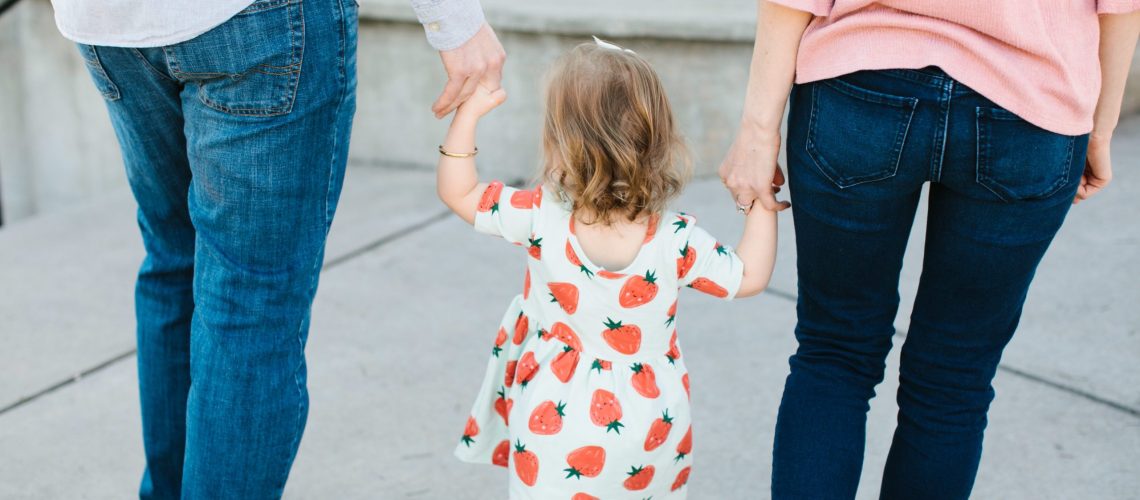Nothing strikes fear in the heart of parents more than thinking about THE sex talk. Like many, you may have had an awkward conversation with a parent on this topic. Perhaps the memory left an indelible impression and a steadfast commitment to doing it “better” with your own kids. Or maybe you had very progressive parents who were super comfortable talking about sex and established a healthy model for discussing delicate topics. Regardless, you are now the parent and you must consider when and how to begin the conversation with your own children.
Noted author and speaker Dr. Jim Burns’ advice is, “It’s important to start the conversation while your kids are young. You don’t have to tell them everything in that moment, or in one talk. This should be many talks – over time – but start young.” So THE talk isn’t a one-time thing, but rather a posture of being open to the dialogue beginning when our children are very young.
The struggle isn’t with intent, it’s with execution – HOW do we begin and continue this dialogue in a natural, comfortable way. Our friends at Parent Cue have developed a series of Phase guides that support parents in this very area. Each age is a new phase with a new set of opportunities to direct your child into the path of sexual integrity. The deposits you make today, using these guides, will pay off when your child is beginning to understand and make their own decisions regarding their potential for intimacy. Keep reading below for a guide to “the talk” for every age!

New Baby
This year you will introduce them to their body. So your child will discover their body and define their privacy.
Your conversations with your child about sexual integrity will never be simpler than they are right now. But it’s never to early to start with some of the right words.
SAY THINGS LIKE…
You have strong little legs.
You have elbows.
You have a vagina/penis.
ASK YOURSELF
What influences shaped your views of sex growing up? (Parents, media, friends, etc)
How does your own life story shape your future hopes for your child in this area?
When it comes to your child’s sexuality, what do you hope is true for them 936 weeks from now?
Are you and your spouse, or your child’s other parent, on the same page when it comes to talking about sex with your child? How might your work on a plan to communicate your hopes, expectations, and real-time conversations with your child about sex?

One Year Old
Your conversations with your child regarding sexual integrity will never be simpler than they are right now. But it’s never too early to start with some of the right words.
SAY THINGS LIKE . . .
Where’s your belly button?
There is your nose.
That’s your vagina/penis.
(Use correct names of body parts as you bathe and change your child—experts suggest that learning proper words can protect your kid from potential harm as well as create a positive view of their body.)
ASK YOURSELF…
What influences shaped your views of sex growing up? (Parents, media, friends, other adults . . . )
How does your own life story shape your future hopes for your child in this area?
When it comes to your child’s sexuality, what do you hope is true for them 936 weeks from now?
Are you and your spouse, or your child’s other parent, on the same page when it comes to talking about sex with your child? How might you work on a plan to communicate your hopes, expectations, and real-time conversations with your child about sex?

Two Year Old
There’s a good chance your two-year-old is becoming more aware of their body and the bodies of others. Use this time to lay a foundation for future conversations by simply talking about bodies in a positive way.
SAY THINGS LIKE . . .
That’s your nose. Those are your eyes. That’s your vagina/penis. (Help your child learn the correct names of body parts – experts suggest that learning proper words can protect your kid from potential harm as well as create a positive view of their body.)
No, girls don’t have a penis. (If your child notices that someone’s body is different than their own, talk about the differences.)
ASK YOURSELF…
What influences shaped your views of sex growing up? (Parents, media, friends, other adults . . . )
How does your own life story shape your future hopes for your child in this area?
When it comes to your child’s sexuality, what do you hope is true for them 832 weeks from now?
Are you and your spouse, or your child’s other parent, on the same page when it comes to talking about sex with your child?

Three Year Old
There’s a good chance your preschooler is becoming more aware of their body and the bodies of others. Use this time to lay a foundation for future conversations by simply talking about bodies in a positive way.
SAY THINGS LIKE . . .
Close the door when you go to the potty.
I love watching you grow.
That’s your nose. These are your eyes. That’s your vagina/penis. (Help your child learn the correct names of body parts – experts suggest that learning proper words can protect your kid from potential harm as well as create a positive view of their body.)
No, girls don’t have a penis. (If your child notices that someone’s body is different than their own, talk about the differences.)
Babies grow inside their mama until it’s time to be born.
ASK YOURSELF…
What influences shaped your views of sex growing up? (Parents, media, friends, other adults . . . )
How does your own life story shape your future hopes for your child in this area?
When it comes to your child’s sexuality, what do you hope is true for them 780 weeks from now?
Are you and your spouse, or your child’s other parent, on the same page when it comes to talking about sex with your child? How might you work on a plan to communicate your hopes, expectations, and real-time conversations with your child about sex?

Four Year Old
Your four-year-old may be so comfortable with their body they have no problem running outside in their birthday suit. That confidence is a good thing, but it’s also a good time to start coaching them to understand privacy and personal boundaries.
SAY THINGS LIKE . . .
It’s polite to look away when someone is changing their clothes.
Can you give your sister some space?
Your penis/vagina/bottom/nipples are private and we don’t show them to people.
If someone touches your private parts, come and tell me right away.
Don’t touch your private parts in public.
Close the door when you go to the potty.
Your friend might not want you to sit on his face.
It’s always okay to tell someone “no” if you don’t want them to touch you.
Sometimes the doctor might touch a private part to make sure you are healthy. It’s okay when I’m with you.
ASK YOURSELF…
When it comes to your child’s sexuality, what do you hope is true for them 728 weeks from now?
Are you and your spouse, or your child’s other parent, on the same page when it comes to talking about privacy? How might you work on a plan to communicate your hopes, expectations, and real-time conversations with your child about sex?
Write down a few things you want to communicate to your four-year-old about their body, right now in this phase. (They won’t remember it all after one talk. It will take many talks, over time, to communicate what you want them to know.)

Kindergartner
Your kindergartner may have already asked some questions, and you probably weren’t ready to give a full-disclosure answer. That’s okay. In this phase, the most important thing is to give simple answers to biological questions, continue coaching privacy and personal boundaries, and keep the conversations casual.
SAY THINGS LIKE . . .
Can we talk more about this another time? (Always finish the conversation with room to pick it back up again later.)
You are very special – all of you, your feelings, your thoughts and your body.
Can you give your sister some space?
Your friend might not want you to sit on his face.
Touching is never secret.
I’m so glad you asked me.
It’s always okay to tell someone “no” if you don’t want them to touch you.
If someone touches you and you don’t like it, come and tell me right away.
ASK YOURSELF…
When it comes to your child’s sexuality, what do you hope is true for them 676 weeks from now?
What do you want to communicate to your kindergartener about sex when the times comes to talk about in more detail? (You may choose the time and place of the conversation, or they may ask you before you planned – so you might as well give it a little thought ahead of time.)
Write down a few things you want to communicate to your kindergartener about their body, right now in this phase. (They won’t remember it all after one talk. It will take many talks, over time, to communicate what you want them to know.)
Looking to dive deeper? Give a listen to The Parent Cue podcast: Sex Conversations Through the Phases for more with Dr. Burns and Kristen Ivy, President of Parent Cue.
Adapted from “The Right Way to Have ‘The Talk’” by Mike Clear on ParentCue.org




